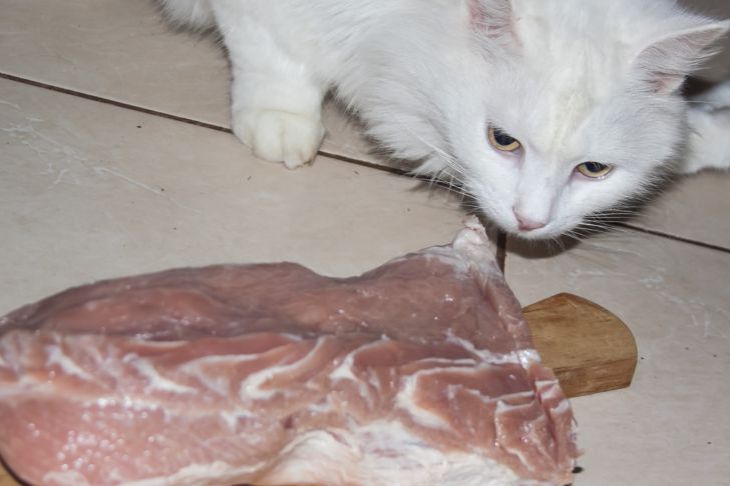Cats are pretty hungry creatures, and when they see a treat, they will do anything to get it. But keep in mind that there are foods that they should not eat.
Here is a list of foods you should never give to your cats.
1. Chocolate is harmful to both dogs and cats.
Chocolate is just as harmful to cats as it is to dogs. It contains substances (called methylxanthines) that cause diarrhea, vomiting, fever, seizures, and heart problems in animals. All of these symptoms can easily be fatal to animals. Dark chocolate contains more of these substances, so be especially careful with it.
Caffeinated drinks contain the same chemicals, so if you spill cola on the floor, it's best to quickly chase your cat away.
2. Be careful with onions and garlic
Onions and garlic damage cats' red blood cells, causing anemia. They are especially dangerous when eaten raw and in large quantities, so keep your cats away from anything containing onions and garlic.

Cats that have eaten onions or garlic can be identified by decreased appetite, weakness, pale gums, or orange-red urine. If you notice these signs, take your cat to the vet.
3. Don't give your cat leftover food.
If you regularly feed your cat scraps, it will develop a begging habit, but what's worse is that scraps often contain foods that are harmful to cats (like potatoes and tomatoes).
Fatty and fried foods cause diarrhea and digestive problems in cats. They are also higher in fat than regular cat food, so cats gain weight quickly.
4. Cow's milk is a myth
Although we have been led to believe from fairy tales that cats drink cow's milk, the truth is that it does not do them much good. It contains lactose, which cats cannot digest, so after drinking milk they get diarrhea and stomach pain. If you want to treat your cat to milk, buy lactose-free milk.
5. Grapes
Even a small amount of grapes can cause kidney failure in your cats within 24 hours. So if you catch your cat eating grapes, don’t wait and take them to the vet. Common symptoms after eating grapes include vomiting, diarrhea, lethargy, or lack of appetite.
6. Cats' stomachs suffer after yeast dough
Cats don't like sourdough treats because they cause severe stomach pain. The dough bloats their stomachs and intestines to the point that they can burst.
Therefore, keep cats away from both raw dough and ready-made dumplings, buns and other products made from yeast dough.
7. Don't confuse dog and cat food
Cats and dogs differ not only in behavior, but also in diet. Therefore, never feed cats dog food. Although it is not directly poisonous to cats, it contains substances different from those necessary for the cat's body. For this reason, if fed regularly, cats may develop heart disease or problems with teeth and vision.
8. Be careful with some plants
If you have a cat in your home, some plants need to go from your garden or pots. Cats can usually tell which plants are poisonous to them before they devour the entire flower bed, but leaving them to grow freely around your cat is still dangerous.
Therefore, do not grow or display near cats:
- lilies;
- cape lilies;
- peas;
- wisteria;
- mistletoe;
- ivy.
How to protect cats from toxic foods.
There are several techniques you can use to keep cats away from toxic foods in your home.
Keep food where your cat can't reach it. Don't let your cat sit on the dining table or kitchen counter.
Avoid feeding your cat leftovers as they may become accustomed to foods not normally intended for cats.
At Christmas, Easter, and other times when treats are scattered throughout the house, pay special attention to where your cat is and what she's doing.
What Not to Overlook in a Cat's Diet
In order to grow well and stay healthy, a cat needs a lot of nutrients. According to scientific research, cats need exactly the same substances that mice contain. This is a certain amount of proteins, fats, carbohydrates, vitamins and minerals, which are given to cats in two ways.
1. Dry food containing meat will provide your cat with perfectly balanced nutrition. But beware of cheap high-salt cat foods, which cause kidney stones.
2. Wet food, some cats prefer wet food such as canned food or pate. These also provide balanced nutrition for cats. But again, beware of high salt content.
Cat food should contain mainly proteins, fats, minerals and, of course, vitamins. These ingredients are found in both dry food and canned cat food. Therefore, they should form the basis of every cat's diet.








